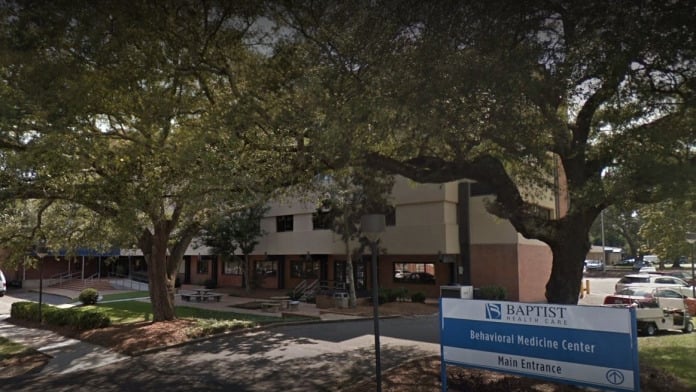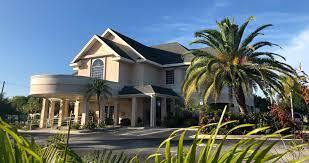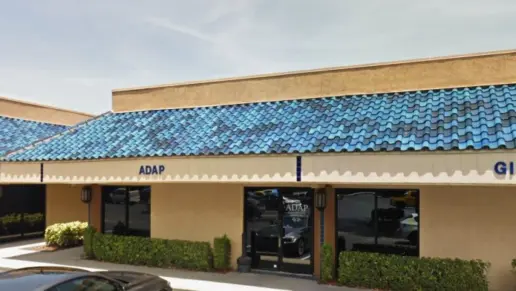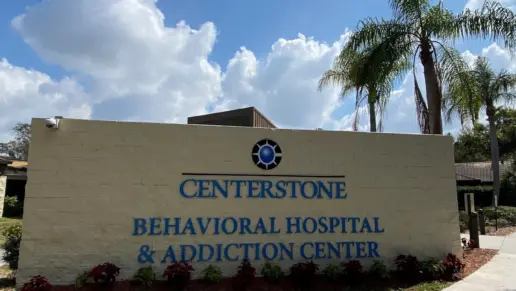About Baptist Behavioral Medicine Center
Baptist Behavioral Medicine Center is located in Pensacola, Florida. It provides a wide array of drug and alcohol treatment programs and services as well as other behavioral health treatments including those for co-occurring mental health disorders. The center has distinguished itself by offering its full range of services and meeting patients where they are, tailoring treatment plans that address their medical, therapeutic and social needs.
The beautiful coastal community of Pensacola provides the tranquility and restorative energy needed for recovery. Showcasing its leadership status in behavioral healthcare, this facility is also connected to the largest network of diverse resources and expertise through the Lakeview Center.
The facility offers individualized treatment options through outpatient and residential care for those who have developed substance use disorders. They support patients and help guide people to the necessary tools and strength they require for lasting recovery. They also offer group therapy, individual counseling, trauma-focused management and other essential care that addresses the root causes of addiction.
If a patient has mental health disorders that occur along with the addiction, the center integrates its services to treat both together. Through specialized care teams they provide medication management, psychiatric evaluations and counseling to people with conditions like anxiety, depression or other traumatic disorders that often accompany substance use disorders.
Baptist Behavioral Medicine Center addiction programs treat patients amid an addictive cycle stemming from opioid use. Such evidence-based treatment options include medication assisted treatment (MAT) This involves the use of medications such as buprenorphine or methadone along with counseling and behavioral therapies. It is a comprehensive strategy that not only alleviates dependency but equips clients for recovery.
The center, however, offers much more than just addiction services. Their crisis and emergency care serves individuals in acute mental health crises who need immediate intervention to prevent health deterioration. Their adult counseling and mental health services include outpatient counseling, trauma recovery, supportive living for people with severe mental illness and criminal justice support to help those involved in the legal system.
Latest Reviews
Rehab Score
Gallery

Location
Accepted Insurance


Other Forms of Payment
Self-pay involves paying for treatment out of your own pocket. You can use savings or credit, get a personal loan, or receive help from family and friends to fund your treatment. If you don't have insurance or your insurance plan doesn't cover a specific program, self-pay can help ensure you still get the care you need.
Private insurance refers to any kind of healthcare coverage that isn't from the state or federal government. This includes individual and family plans offered by an employer or purchased from the Insurance Marketplace. Every plan will have different requirements and out of pocket costs so be sure to get the full details before you start treatment.
Medicaid is a state based program that helps lower-income individuals and families pay for healthcare. Medicaid covers addiction treatment so those enrolled can use their coverage to pay for rehab. When a program accepts Medicaid the client often pays very little or nothing out of their own pocket.
Medicare is a federal program that provides health insurance for those 65 and older. It also serves people under 65 with chronic and disabling health challenges. To use Medicare for addiction treatment you need to find a program that accepts Medicare and is in network with your plan. Out of pocket costs and preauthorization requirements vary, so always check with your provider.
Military members, veterans, and eligible dependents have access to specific insurance programs that help them get the care they need. TRICARE and VA insurance can help you access low cost or no cost addiction and mental health treatment. Programs that accept military insurance often have targeted treatment focused on the unique challenges military members, veterans, and their families face.
Addiction Treatments
Levels of Care
Treatments
The goal of treatment for alcoholism is abstinence. Those with poor social support, poor motivation, or psychiatric disorders tend to relapse within a few years of treatment. For these people, success is measured by longer periods of abstinence, reduced use of alcohol, better health, and improved social functioning. Recovery and Maintenance are usually based on 12 step programs and AA meetings.
Drug rehab in Florida provides quality treatment to help individuals overcome dependency related to a wide range of addictive substances. Programs address both the physical and mental aspects of addiction in order to help you make a full recovery.
Many of those suffering from addiction also suffer from mental or emotional illnesses like schizophrenia, bipolar disorder, depression, or anxiety disorders. Rehab and other substance abuse facilities treating those with a dual diagnosis or co-occurring disorder administer psychiatric treatment to address the person's mental health issue in addition to drug and alcohol rehabilitation.
A combined mental health and substance abuse rehab has the staff and resources available to handle individuals with both mental health and substance abuse issues. It can be challenging to determine where a specific symptom stems from (a mental health issue or an issue related to substance abuse), so mental health and substance abuse professionals are helpful in detangling symptoms and keeping treatment on track.
Opioid rehabs specialize in supporting those recovering from opioid addiction. They treat those suffering from addiction to illegal opioids like heroin, as well as prescription drugs like oxycodone. These centers typically combine both physical as well as mental and emotional support to help stop addiction. Physical support often includes medical detox and subsequent medical support (including medication), and mental support includes in-depth therapy to address the underlying causes of addiction.
Programs


Clinical Services
Group therapy is any therapeutic work that happens in a group (not one-on-one). There are a number of different group therapy modalities, including support groups, experiential therapy, psycho-education, and more. Group therapy involves treatment as well as processing interaction between group members.
In individual therapy, a patient meets one-on-one with a trained psychologist or counselor. Therapy is a pivotal part of effective substance abuse treatment, as it often covers root causes of addiction, including challenges faced by the patient in their social, family, and work/school life.
Trauma therapy addresses traumatic incidents from a client's past that are likely affecting their present-day experience. Trauma is often one of the primary triggers and potential causes of addiction, and can stem from child sexual abuse, domestic violence, having a parent with a mental illness, losing one or both parents at a young age, teenage or adult sexual assault, or any number of other factors. The purpose of trauma therapy is to allow a patient to process trauma and move through and past it, with the help of trained and compassionate mental health professionals.
Amenities
-
Residential Setting
Accreditations

The Commission on Accreditation of Rehabilitation Facilities (CARF) is a non-profit organization that specifically accredits rehab organizations. Founded in 1966, CARF's, mission is to help service providers like rehab facilities maintain high standards of care.
CARF Accreditation: Yes
Contact Information
1101 West Moreno St.
Pensacola, FL 32501










